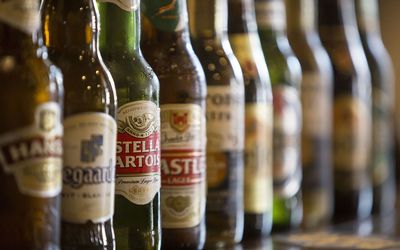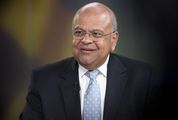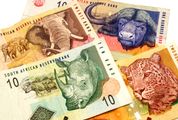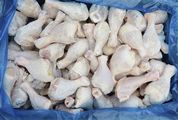AB InBev sells SABMiller’s stake in Chinese brewer
by Agency Staff,
2016-03-02 08:24:17.0
SHANGHAI — The world’s top brewer, Anheuser-Busch InBev, has agreed to sell SABMiller’s stake in China’s leading beer maker to the local partner for $1.6bn, as part of a mega-merger between the giants.
China Resources Beer (Holdings) Co will buy the 49% stake in Snow Breweries, its joint venture with SABMiller, it said in a statement to the Hong Kong stock exchange, where it is listed.
It said the deal would go through "as soon as practicable" after AB InBev, a Belgian-Brazilian company, takes over SABMiller.
AB InBev announced in November last year that it would buy SABMiller for $121bn — the third-largest acquisition in history — creating a juggernaut that brews three times as much beer as its nearest rival.
Analysts said the sale appeared aimed at persuading Chinese regulators to sign off on the deal.
AB InBev aims to complete the SABMiller takeover by the end of this year, and said last month the plans were on track.
"After the acquisition deal between AB InBev and SABMiller, their market share in China would have exceeded 40%. This may not pass the antitrust survey by the ministry of commerce, so AB InBev had to sell the stake," Guotai Junan Securities analyst Song Tao said.
The Snow Breweries venture, set up in 1994, has a market share of about 24% in China and operates 98 plants across the country, according to SABMiller, which describes the venture’s Snow product as the world’s biggest beer brand.
AB InBev already has a presence in China with a 15.9% domestic market share and 39 beverage plants as of 2014, according to the company.
But analysts said that shedding the Snow Breweries holding was a setback for the newly formed entity in the world’s biggest beer market, while China Resources Beer — part of the massive conglomerate China Resources — loses a strong foreign partner, leaving it weak in the premium segment.
"Losing the Snow Breweries stake has a huge impact on the foreign brand because it will lose the price negotiation advantage it used to have with raw material suppliers and the scale-of-production advantage from the factories," said Stacey Yu, an analyst at consultancy Business Connect China.
Analysts said competition was expected to intensify in the Chinese beer market, where growth was slowing in the face of economic headwinds.
"Without one company dominating the market and enjoying increased pricing power, the beer market will remain fiercely competitive," Mr Song said.
AB InBev has acquired or formed partnerships with a number of leading Chinese brewers and doubled its China business in 2006 by acquiring Fujian Sedrin Brewery.
At 10.10am,
SABMiller shares were up 0.49% at R925.74 at 10.10am on the JSE, valuing the company at about R1.8-trillion, while AB InBev had added 1.26% to R1,792.31, valuing the company at about R2.8-trillion.
In Hong Kong, shares in China Resources Beer jumped 25% to their highest level in five years, regaining ground lost so far this year after the stock was dropped from the main constituents in the Hang Seng index.
AFP, with Reuters and Staff Writer

Anheuser-Busch InBev and SABMiller branded beers. Picture: BLOOMBERG/HALDEN KROG
SHANGHAI — The world’s top brewer, Anheuser-Busch InBev, has agreed to sell SABMiller’s stake in China’s leading beer maker to the local partner for $1.6bn, as part of a mega-merger between the giants.
China Resources Beer (Holdings) Co will buy the 49% stake in Snow Breweries, its joint venture with SABMiller, it said in a statement to the Hong Kong stock exchange, where it is listed.
It said the deal would go through "as soon as practicable" after AB InBev, a Belgian-Brazilian company, takes over SABMiller.
AB InBev announced in November last year that it would buy SABMiller for $121bn — the third-largest acquisition in history — creating a juggernaut that brews three times as much beer as its nearest rival.
Analysts said the sale appeared aimed at persuading Chinese regulators to sign off on the deal.
AB InBev aims to complete the SABMiller takeover by the end of this year, and said last month the plans were on track.
"After the acquisition deal between AB InBev and SABMiller, their market share in China would have exceeded 40%. This may not pass the antitrust survey by the ministry of commerce, so AB InBev had to sell the stake," Guotai Junan Securities analyst Song Tao said.
The Snow Breweries venture, set up in 1994, has a market share of about 24% in China and operates 98 plants across the country, according to SABMiller, which describes the venture’s Snow product as the world’s biggest beer brand.
AB InBev already has a presence in China with a 15.9% domestic market share and 39 beverage plants as of 2014, according to the company.
But analysts said that shedding the Snow Breweries holding was a setback for the newly formed entity in the world’s biggest beer market, while China Resources Beer — part of the massive conglomerate China Resources — loses a strong foreign partner, leaving it weak in the premium segment.
"Losing the Snow Breweries stake has a huge impact on the foreign brand because it will lose the price negotiation advantage it used to have with raw material suppliers and the scale-of-production advantage from the factories," said Stacey Yu, an analyst at consultancy Business Connect China.
Analysts said competition was expected to intensify in the Chinese beer market, where growth was slowing in the face of economic headwinds.
"Without one company dominating the market and enjoying increased pricing power, the beer market will remain fiercely competitive," Mr Song said.
AB InBev has acquired or formed partnerships with a number of leading Chinese brewers and doubled its China business in 2006 by acquiring Fujian Sedrin Brewery.
At 10.10am,
SABMiller shares were up 0.49% at R925.74 at 10.10am on the JSE, valuing the company at about R1.8-trillion, while AB InBev had added 1.26% to R1,792.31, valuing the company at about R2.8-trillion.
In Hong Kong, shares in China Resources Beer jumped 25% to their highest level in five years, regaining ground lost so far this year after the stock was dropped from the main constituents in the Hang Seng index.
AFP, with Reuters and Staff Writer




















Change: 1.42%
Change: 1.44%
Change: 1.72%
Change: 0.69%
Change: 3.98%
Data supplied by Profile Data
Change: 0.16%
Change: 0.20%
Change: 1.42%
Change: 0.00%
Change: 0.41%
Data supplied by Profile Data
Change: 0.69%
Change: 0.63%
Change: 0.61%
Change: 0.15%
Change: 1.03%
Data supplied by Profile Data
Change: 0.18%
Change: 0.11%
Change: -0.07%
Change: 0.19%
Change: -1.00%
Data supplied by Profile Data